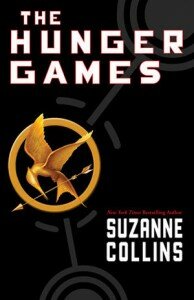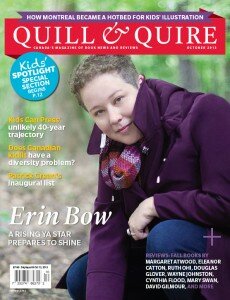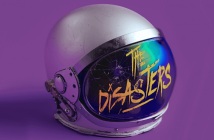Famous-ish author for grown-ups Joanna Trollope told London’s Sunday Times that teens should stop reading things like The Hunger Games, Harry Potter, and Twilight, and start reading classical literature of the 19th century. This presumably came up because Trollope is about to publish a reworking of Jane Austen. The Times is behind a paywall, but the Telegraph reports it thus:
The author said she wants to see 19th century authors like Jane Austen and George Eliot taught in schools and getting back onto bestseller lists to give children a stronger sense of guidance.
She said she fears children are “missing out on an enormous amount” by the focus on fantasy novels, such as Twilight and The Hunger Games.
“Although fantasy is a lovely escape, I am not sure it’s much help,” Trollope told the Sunday Times.
“Because it is a parallel world, it’s not the one you are wrestling with. The classics, by contrast, can comfort children and give them guidance.”
Oh, where to start?
Should I point out that the country estates of the landed gentry circa 1800 are at least as foreign to young readers as Hogwarts or District 12? Shall I take issue with the assumption that the function of books is to be wholesome and improving, like kale? Shall I defend the idea of “escape” and let loose my rant about what patronizing horse hooey the phrase “guilty pleasure” is? (Cocaine is a guilty pleasure. Books are simply a pleasure.) Shall I recount my own high school reading (a bizarre mix of physics texts by Richard Feynman, poetry by T.S. Eliot, and hundreds of Star Trek novels) and end with an assertion that it taught me to love reading, which in itself has defined my life?
Probably I should not do that last, as it depends on the reader believing me when I say I turned out all right, when in fact I turned out to be a writer of fantasy for young readers. In other words I am exactly part of the problem. The vampire that (as the Times headline has it) drives a stake in Jane Austen.
Well. In my capacity as a destroyer of the classics, I regularly visit classrooms. I have a story I’d like to tell Ms. Trollope. First, I will mention that I have some sympathy for her, caught in the firestorm she’s probably stirred up. I too talk off the cuff, and say things I haven’t entirely thought through, that are true only from a particular angle. For instance, I once told a class of 12th graders that my novel Plain Kate — set during a witch craze in medieval Russia — was autobiographical.
 |
Joanna Trollope juxtaposed young adult classics Twilight and The Hunger Games against Austen’s Pride and Prejudice.
“Not that I’ve ever been driven out of my home because I didn’t quite fit in,” I told the kids, as they stared at me. “Except that high school is exactly like that.” As one, they locked eyes with me. Some nodded, subtle nods, nods of people who hear and understand, though they feel themselves under surveillance, though they are afraid. It was an electric moment. Even now, recounting it, my hair stands up. All of them — cheerleaders, debate club kids, jocks, goths, all of them — they looked at me and understood.
Be kind, wrote Pliny. Everyone you meet is fighting a hard battle. I remembered that quote — because I also read a lot of Latin in high school — and tears sprang into my eyes. In another moment half the class was crying.
Ms. Trollope’s critique would deny that moments like that could ever happen. What guidance and help could we possibly find in a parallel world? Every guidance, I think. Every help. Somewhere in literature, what you need is out there.
Her critique denies something more basic, too — that we can connect, through literature, to lives that are different than our own. If literature has a purpose it must surely be that. If you stop and think it over, it is a miracle that I, as a writer, can write about someone who is not me, and another miracle that you as a reader can meet that person as if they were real. We create them between us, the way two people sometimes create a third thing called love.
That act of creation is not always easy. It takes a bit of practice. That is obviously true for writers: I told my five-year-old once that I still had to practice my writing, every day. That after years of loving it best of all the things I do and doing it every day, it still gave me trouble. (“Is it the Qs?” she asked me. “Because Qs are weird.”) What’s seldom said is that it takes a bit of practice for the reader, too. You have to learn to fall in love with books.
This is why I’m very glad to be a writer for young people. What books do we love as much as the books we love when we are children? What books are more important to us? What books change our lives more than the ones that change us when we are children? How do we read at all, as adults, if we don’t first learn that wonder?
So I am all in favour of letting young people read whatever they want to read, without judgment. They are falling in love with reading, and that is what’s important. Sometimes that love takes practice, which is why it’s entirely appropriate that sometimes we read the same thing over and over again, as I did with my Star Trek novels. I was probably trying to convince myself that smart scientific misfits were going to be okay in the long run. It was the help and guidance I needed.
Of course teachers and schools should continue to push students outside the reading they want to do — part of what school is for is that gradual widening of one’s comfort zone, one’s tastes. If a teacher wants to dive into the parallel world of manners and mores that define a place like Austen’s Pemberley, that’s fine. But if, outside of school, students also want to read — how can that be anything but wonderful? How dare we take issue with that? The most fundamental problem with Trollope’s argument is that it’s based on the fallacy of false dichotomy – that is, that in a world that contains both Elizabeth Bennett and Buffy the Vampire Slayer, we somehow need to pick only one.
 As for fantasy, specifically, it’s always appealed to young people. There are many reasons, but I think the core of it is this. Fantasy elevates ordinary and eternal problems of youth into stories via the language of myth. It turns “No one really knows me” into “I’ve got a secret identity.” It turns “I don’t understand why other people act the way they do” into “I’m trapped in a faerie realm.” It turns “my high school must have been built over the mouth of hell” into “my high school must have been built over the mouth of hell.”
As for fantasy, specifically, it’s always appealed to young people. There are many reasons, but I think the core of it is this. Fantasy elevates ordinary and eternal problems of youth into stories via the language of myth. It turns “No one really knows me” into “I’ve got a secret identity.” It turns “I don’t understand why other people act the way they do” into “I’m trapped in a faerie realm.” It turns “my high school must have been built over the mouth of hell” into “my high school must have been built over the mouth of hell.”
Ms. Trollope, please hear this: There are certain things in life that are glorious, and they are glorious for everyone. There are more that are hard, and they are hard for everyone. We like to see these things retold, but with dragons.
Erin Bow is the author of two books of fantasy for young adults: the critically acclaimed Plain Kate and the spooky, lovely Sorrow’s Knot, which comes out this Halloween.
This post has been quoted in Philip Martin’s The Purpose of Fantasy.





7 Comments
If you choose to read only a certain genre, you’re missing out on a lot of inspiration. Human struggles and triumphs make for good story telling no matter what the setting. School librarians do a fantastic job at keeping their shelves filled with the great spectrum of YA… including Ms. Trollope’s latest release. I wonder how she feels being slotted beside JRR Tolkien?
Great post, Erin.
Congratulations on a marvellous post. Fantasy Fiction pulled me through a tough childhood and years later, an abusive marriage. I read Jane Austen and George Orwell and many others but always gravitated back to my beloved fantasy, and at 41 years of age I continue to ‘escape’ to those faerie realms, I learnt a lot there!
Pingback: News Bites | The Book Wars
With the exception of the works of Shakespeare, every last word of which was trotted off by the luckiest chimps this side of a zoo tea party involving max bananas, most books were written by humans. Some are good and some are bad (the books, not the chimps – they’re evil) and my understanding is that you take your pick as to what to read. I have no problem with recommendations or warnings but when people get overly prescriptive (particularly when advocating what should be read by children) I cry GNASH GRR GNASH.
Classics? Yup, you’ve got to read them. They’re about humans.
Contemporary stuff? Ditto. It’s about humans too. OK, so they shapeshift from time to time and have the odd pointy ear but what’s an amorphous appendage between grown adults?
You know people don’t know YA when the first novels they name are Hunger Games and Twilight. It’s like discussing politics with someone who can only name Romney and Obama.
Pingback: Links: Monday, October 29th | Love in the Margins
Yes! I’m so tired of writers who trash someone else (usually a very famous, successful someone else) in order to advocate for themselves. And I’m very tired of lazy, reductive thinking.